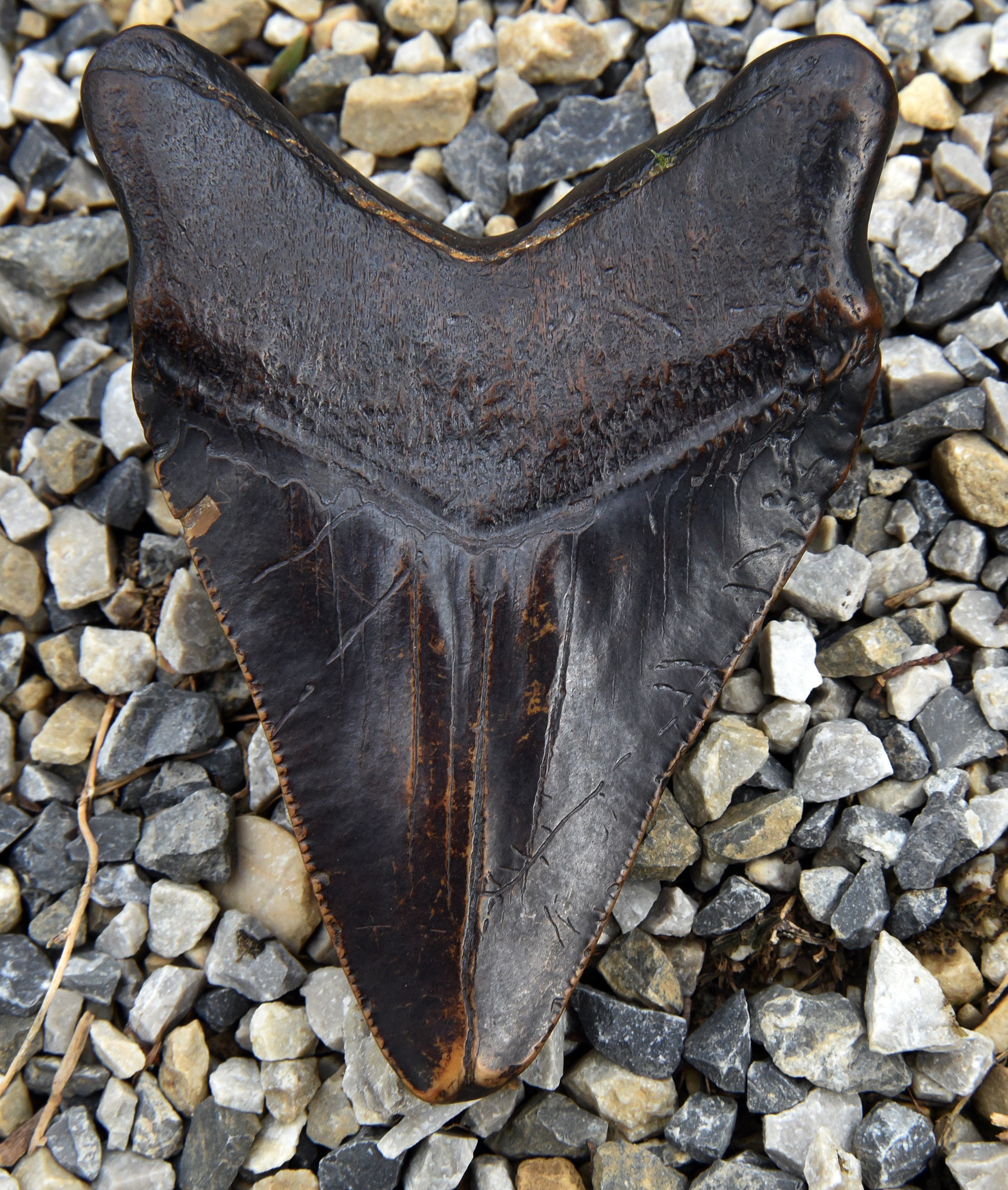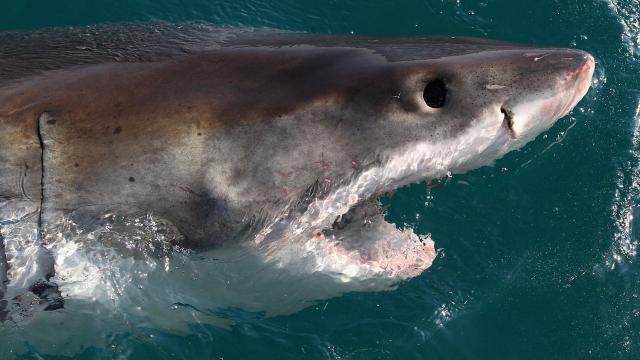A team of researchers scrutinizing the teeth of great white sharks and those of the extinct giant shark Otodus megalodon believe that competition for food between the two species may have contributed to the megalodon’s extinction.
Great white sharks (Carcharodon carcharias) are apex predators that can grow up to 20 feet long and weigh around 2,268 kg. The much more massive (about 18.29 m) megalodons went extinct about 3.6 million years ago, but for a time in the Pliocene Epoch, the two species coexisted and also competed, to the chagrin of the megalodon. The dietary competition between the two animals, as evidenced by zinc levels in their teeth, is described in a new study published today in Nature Communications.
Unlike evidence of a shark’s short-term food consumption — bite marks on bones, fossilized stomach contents, and shark faeces — the zinc signal in tooth enamel points to the long-term dietary habit of an animal. The zinc isotopes are a proxy for diet and indicate their trophic levels, or their places on the food chain.
“The ratio of heavier to lighter zinc changes in body tissues compared to the diet providing us with a way to track the relative position of an animal in its food chain,” said study lead author Jeremy McCormack, a geoscientist at the Max Planck Institute for Evolutionary Anthropology in Leipzig, Germany, and Goethe-University Frankfurt, in an email to Gizmodo.
McCormack’s team inspected zinc isotopes in shark teeth from 20 extant species, as well as 12 fossil species besides O. megalodon. As it turns out, the trophic levels of great white sharks and megalodons overlapped, indicating at least some competition between the two species took place.

Like many predators in the animal kingdom, megalodons were probably competing for survival from the earliest moments of their life. Previous research has indicated that newly hatched megalodons may have eaten their unhatched siblings, a process called oophagy (filial cannibalism), to get an early burst of nutrition.
The notion that great whites competed with megalodons until the latter went extinct has been previously suggested, and this research offers new evidence that competition may have played a key role. “Our new study shows that the dietary range of the Early Pliocene great white shark is very similar to that of megalodon, indicating that our data do not contradict the competition hypothesis,” McCormack said.
The researchers noted that competition wouldn’t have been the sole contributor to megalodon extinction; climate change probably played a role, along with the collapse of prey populations. Essentially, the megalodons weren’t getting enough food because the world itself was changing, and the ravenous appetite of its (relatively) scrawny cousin didn’t help.
More: Newborn Megalodons Were Larger Than Adult Humans and Probably Ate Their Siblings
